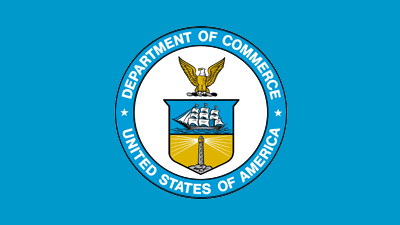
Remarks by Deputy Secretary of Commerce Don Graves at the BIS Update Conference
Apr 1, 2024
Remarks by Deputy Secretary of Commerce Don Graves at the BIS Update Conference
[email protected]
Thu, 03/28/2024 – 14:57
ICT Supply Chain
Trade enforcement
AS PREPARED FOR DELIVERY
Thursday, March 28, 2024
Office of Public Affairs
Don Graves
Hello everyone! I’m very pleased to be back here today speaking with you all. I’d like to give a big thank you to the BIS team for putting together this remarkable conference.
The last time I spoke at this conference was in 2022. Looking back, I don’t think anyone expected that in two years’ time, Russia’s illegal war of aggression against Ukraine would still be ongoing. But I believe that is a testament to the courage, grit, and determination of the Ukrainian people and their leadership, and to the steadfast support of democracies and industry around the world standing up for what is right.
I know Ambassador Markarova spoke here yesterday. And I just want to say – we stand with you, we’re inspired by you, and the Department of Commerce will continue to do everything we can to support Ukraine and its people during this challenging time.
Our support is spearheaded by Commerce’s Bureau of Industry and Security.
BIS is a critical part of this Department’s national security strategy and as many of you here know has been at the vanguard of our national security work for decades.
So what’s changed? The demand for BIS’s work has skyrocketed. As a result, both the scale and scope of its efforts have increased exponentially. Put simply: BIS is doing more work, on more complex challenges, faster than ever before.
And that is true across all aspects of BIS’s work. License applications, rules, entity listings, enforcement, industry and international engagement – BIS is the tip of the spear on addressing threats from our adversaries and protecting our technology and goods from abuse by malign actors who seek to use them against us.
But let me take a step back and tell you how we got here.
In recent times, we’ve witnessed a number of acute shocks to the global environment. Russia’s brutal war is one example. The COVID-19 pandemic is another. It laid bare the real vulnerabilities in our supply chains, following the decades-long hollowing out of America’s industrial base.
But there’s even more beyond that. Our larger strategic environment has also transformed in the last decade. We now live in an era of strategic competition and global interdependence.
The PRC, for example, is the only state with both the intent and increasingly, the power to reshape the existing international order – an order that has prevailed for the last three-quarters of a century. The problem that poses is exacerbated by the breakneck pace of technological development, global democratic backsliding, and greater challenges to global and regional governance across the world. At the same time, the PRC and the United States are reliant on one another economically and share interests in addressing transnational problems, such as the systemic threat of climate change.
The complexity of the China challenge is rooted in the interconnected relationship between economics, science, technology, and national security. And the Department of Commerce sits at that very nexus, and so has never been more central to ensuring our country’s national security than today.
And our national security priorities reflect the strategic moment we’re facing. For each of those priorities, BIS is a critical piece of our strategy. Let me give two brief examples.
First, take critical and emerging technologies, or CET. As President Biden has stated time and again, the world will witness more technological change in the next few years than in the last fifty. Critical and emerging technologies — such as quantum information science, biotech, AI, and others – are driving this transformation. These technologies will increasingly underpin how societies function, interact, and grow.
CET are especially important to the future of society, but like all technologies, they can be manipulated by our adversaries to endanger and harm our national security interests, including through efforts to modernize their militaries. We must prevent technology transfer to an adversary that threatens to use our own innovations against us or our allies.
Export controls are some of the Department’s most important tools for protecting CET from such abuse and misuse. We now know the PRC, in particular, will do everything in its power to out-innovate us and to circumvent our regulations.
Export control changes have also increased in frequency, complexity, and significance over the last decade to keep up with the pace of innovation, requiring us to double down on their enforcement.
For example, we are co-leading the Disruptive Technology Strike Force alongside the Department of Justice to investigate and prosecute criminal violations of export laws and enhance administrative enforcement of our export controls.
We have also built upon our partnerships, like the historic Trilateral Leaders’ Summit at Camp David with Japan and South Korea. In February, export control principals from our three countries met in Tokyo to further align on Russia controls, collaborate on outreach to countries in Southeast Asia, and cooperate on controls for CET.
In order to address CET, we must be faster, more agile, and more creative to stay ahead. And that’s the core challenge before us: The very nature of innovation – constant change – means that the job will never be done. So the key to success going forward will be the process of revision, and the strategic impeding and disrupting of adversary advancement when national security interests demand it.
Another national security priority to highlight is our work to counter traditional military threats. Not all abuses of force involve critical and emerging technologies – and even still, Commerce has a significant part to play.
For instance, BIS has long supported State Department-led arms control and nuclear, chemical, and biological nonproliferation efforts by administering and enforcing export controls addressing such concerns. That ongoing work is tremendously important, even though it may not always grab headlines.
But let me return to Russia’s illegal war in Ukraine – a prime example of our work to counter traditional threats. When malign actors abroad use military force that threatens our friends, our shared values, and our collective security, the Commerce Department and the Biden-Harris Administration step up.
Just look at what we’ve accomplished over the last two years.
We cut off trade with Russia in items beyond the Commerce Control List, including thousands of categories of goods identified by six-digit harmonized tariff codes. The use of tariff codes has given us the unprecedented ability to track our controlled trade around the world, and to track down circumvention efforts with new insights into global evasion networks.
We’ve used our Entity List to impose comprehensive license requirements for more than 900 foreign companies supporting Russia, including nearly 250 entities outside Russia who are supporting Russia’s defense industrial base, and recently expanded export controls against thousands of blocked persons designated by the Treasury Department.
We’ve built and maintained a coalition of 39 export control partners, who are substantially aligned with us against Russia, and are working closely with dozens of other nations to cut off transshipment of controlled items to Russia.
We’ve established enforcement information sharing mechanisms with like-minded partners such as the G7 to better coordinate enforcement efforts and make them more effective.
What’s more, we’re working closely with our sister agencies, including the Departments of Justice, Treasury, and Homeland Security, to build out government-wide enforcement policies and actions.
Those are just a few examples that illustrate this simple fact: We’ve accomplished a lot, and we’re going to keep accomplishing more, for as long as Russia’s illegal war persists.
And not just that: we are going to use the lessons we’ve learned in addressing this unnecessary conflict – applying that knowledge to future efforts aimed at protecting the global order.
The last time I spoke here, the theme of the conference was “Building a Network of Global Cooperation”, centering on multilateralism. This year’s theme of “Partnerships in National and Global Security” challenges us to prioritize greater internal coordination, enhance industry engagement, and continue to embrace the importance of multilateral efforts.
So much of this work would be impossible to execute without the work and careful coordination of our interagency partners, but it also highlights the need for partnership collaboration between the federal government and our friends in the private sector.
In September of last year, I had the privilege of leading a cybersecurity trade mission to Korea and Japan, where I got to see firsthand just how important the U.S. private sector is to the enduring national security not just of the United States, but of the whole globe.
We need the private sector’s resources, expertise, and partnership to ensure that the global rules-based economic order can both withstand the threats it faces and strengthen and expand in the decades to come.
In that spirit, we look forward to continuing to develop our National Security Strategy, which will drive us forward in our shared mission to protect, promote, and preserve our national security.
We look forward to deepening our involvement in this important work, at this critical moment in our country’s history, to build a safer and more secure world.
Bureaus and Offices
Bureau of Industry and Security
Leadership
Don Graves
Tags
Export Controls
Exports
National Security
Artificial Intelligence
Climate Change
Read the full report from the U.S. Department of Commerce: Read More




